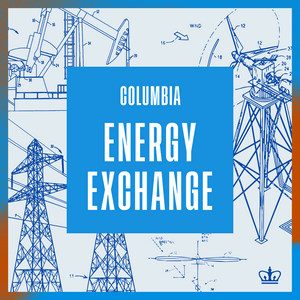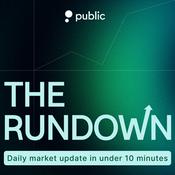132 episódios

From Hot Rocks to Clean Power: Roland Horne on the Future of Geothermal
16/12/2025 | 38min
If it seems like you're hearing a lot more about geothermal energy lately, that's because this clean, firm energy source is at a technological turning point. With roots in the 1970s, enhanced geothermal systems aren't exactly new. But they're finally hitting paydirt — or rather, steam — thanks to improved drilling techniques borrowed from the fracking boom. These advances have made geothermal energy production potentially viable outside of the Western states in the US, where it's long been a small but steady source of power. So what is the state of geothermal energy and what's behind the current surge in innovation? How are falling costs and sustained policy support helping geothermal producers gain more traction right now? And what are the next technical frontiers that could lead to even more productive geothermal wells? This week, Bill Loveless speaks to Roland Horne about the state of geothermal technology, particularly enhanced geothermal systems. Roland is the Thomas Davies Barrow professor of earth sciences, professor of energy science and engineering, and director of the geothermal program at Stanford University. He's also a senior fellow at Stanford's Precourt Institute for Energy. Over his career, he has made significant technical contributions to the field of geothermal energy production Credits: Hosted by Jason Bordoff and Bill Loveless. Produced by Mary Catherine O'Connor, Caroline Pitman, and Kyu Lee. Engineering by Gregory Vilfranc.

Emmanuel Lagarrigue on Climate Investing Today
09/12/2025 | 1h
Investment in clean energy technologies is on course to hit a record $2.2 trillion this year, according to the International Energy Agency. That's more than twice the amount invested in fossil fuels. But 2025 also brought lots of geopolitical, economic, and political uncertainty to clean technology investing. Waning enthusiasm for climate action in some governments and intensifying trade wars have created more risk for many investors. So how much are these policy shifts impacting climate investment strategies? How have investors in the United States reacted to the roll-back of some key incentives in the Inflation Reduction Act? What technologies are most promising? And where is the climate investing landscape headed in the next decade? This week, Jason Bordoff talks to Emmanuel Lagarrigue about the state of renewables and clean tech investing. Emmanuel is a partner and the global co-head of KKR's climate transition strategy. Before that, he was a founding partner of BeyondNetZero, a General Atlantic fund focusing on decarbonization technologies. Emmanuel spent the first two decades of his career at Schneider Electric, where he held a number of leadership roles. He is also an advisory board member here at the Center on Global Energy Policy. Credits: Hosted by Jason Bordoff and Bill Loveless. Produced by Mary Catherine O'Connor, Caroline Pitman, and Kyu Lee. Engineering by Gregory Vilfranc.

Amy Harder on Climate and Energy Reporting
02/12/2025 | 49min
The national conversation around climate change is shifting. There's more focus on energy affordability and demand, as well as on the dual role artificial intelligence plays as both a climate problem and potential tool for lowering emissions. Likewise, there's been a shift in how the media covers these issues. Research shows that news coverage of climate has declined in recent years — as have the number of local newsrooms. Yet, surveys indicate that news consumers want more coverage of climate change. So do reporters and editors, based on strong interest in the Energy Journalism Fellowship at the Center on Global Energy Policy. So what's the state of energy and climate journalism? How have shrinking newsrooms, eroding trust in news institutions, and the rise of AI impacted this beat? And what are the most powerful levers energy and climate reporters can use right now to reach wider audiences and cover the energy transition thoroughly and with integrity? This week, Bill Loveless talks to Amy Harder about the state of energy and climate journalism. Amy is the national energy correspondent for Axios and has been covering energy and climate for more than 15 years. She was among the first reporters to join Axios after its launch in 2017, but from 2021 until earlier this year she was founding executive editor of Cipher News, backed by Breakthrough Energy, a network of clean energy organizations. She began her career at National Journal, and then worked for The Wall Street Journal. Credits: Hosted by Jason Bordoff and Bill Loveless. Produced by Mary Catherine O'Connor, Caroline Pitman, and Kyu Lee. Engineering by Gregory Vilfranc.

In a Charged Environment, FERC Faces Demands for Energy
25/11/2025 | 54min
The Federal Energy Regulatory Commission regulates the United States' energy transmission, pipeline networks, and wholesale rates for electricity. For much of its history, FERC was a little-known federal agency. But that's changing. Today, topics like energy affordability and the urgent build-out of data centers to support AI are putting FERC in the spotlight. The Trump administration is also exerting pressure on the agency. This fall, Energy Secretary Chris Wright directed the commission to fast-track grid connections for certain large loads, such as data centers. But many communities have pushed back against new energy infrastructure. So how is this independent agency handling pressures to reform its policies? How might politics play out — or not — in its rulings and in key court decisions that impact the agency? Outside of the agency, what are some solutions to building more energy infrastructure faster? This week, Jason Bordoff talks to Neil Chatterjee about FERC's role in energy policy. Neil is a former commissioner of FERC, where he also twice served as chairman. Neil recently joined the Center for Global Energy Policy as a distinguished visiting fellow. He also currently is an advisor and investor in a number of organizations and is the chief government affairs officer at residential clean energy company Palmetto. Early in his career, Neil worked for Senator Mitch McConnell, R-Ky., as his energy policy advisor. Credits: Hosted by Jason Bordoff and Bill Loveless. Produced by Mary Catherine O'Connor, Caroline Pitman, and Kyu Lee. Engineering by Gregory Vilfranc.

World Energy Outlook 2025: Navigating Divergent Futures
18/11/2025 | 58min
Around the globe, and here in the United States, energy markets face huge uncertainties. They include everything from rising geopolitical tensions to a wave of new liquefied natural gas supply, and from concentrated critical mineral supply chains to growing demand for electricity. These uncertainties are reflected by the International Energy Agency in this year's World Energy Outlook, which explores a range of possible energy futures — particularly around oil and gas demand. So how have energy policies at the country level, growing economic warfare, and rising prices impacted the IEA's outlook? How should we understand the role of energy security and geopolitical risk? Here in the US, how have energy policy shifts impacted the outlook? And what role do the transition to electric mobility and the pace of energy innovation play? This week, Jason Bordoff talks to Tim Gould about this year's World Energy Outlook, the IEA's flagship annual report. It projects a world with as much as 3 degrees of warming by 2100, under current policies, or with as little as 1.5 degrees of warming by 2100 if global energy systems quickly decarbonize. Tim is the International Energy Agency's chief energy economist. As part of this role, he co-leads the World Energy Outlook. Tim joined the IEA in 2008 as a specialist on Russian and Caspian energy. Before joining the agency, Tim worked on European and Eurasian energy issues in Brussels. Credits: Hosted by Jason Bordoff and Bill Loveless. Produced by Mary Catherine O'Connor, Caroline Pitman, and Kyu Lee. Engineering by Gregory Vilfranc.
Mais podcasts de Negócios
Podcasts em tendência em Negócios
Sobre Columbia Energy Exchange
Ouça Columbia Energy Exchange, Braincast e muitos outros podcasts de todo o mundo com o aplicativo o radio.net

Obtenha o aplicativo gratuito radio.net
- Guardar rádios e podcasts favoritos
- Transmissão via Wi-Fi ou Bluetooth
- Carplay & Android Audo compatìvel
- E ainda mais funções
Obtenha o aplicativo gratuito radio.net
- Guardar rádios e podcasts favoritos
- Transmissão via Wi-Fi ou Bluetooth
- Carplay & Android Audo compatìvel
- E ainda mais funções


Columbia Energy Exchange
baixe o aplicativo,
ouça.







































